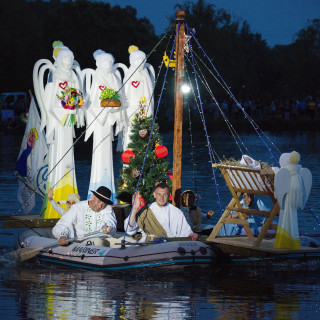Andy's Wordshop
The question this week is "Why is the extra wheel in the back of a car called the 'spare' wheel?" In Slovak it's colloquially called "rezerva", which might lead you to expect "reserve wheel" in
English, which might be understood, but not accepted as the typical collocation (standard expression). Then there are "spare parts" for cars, machines and technical equipment, which might be taken
from other, wrecked cars, but more commonly have to be bought new at great expense. Then there's "spare cash", which street beggars ask you for, and "spare time", which could be leisure time (not
working time), or a moment when you could help somebody else. The non-technical uses of "spare" mean something extra ("navyše") that you have and can give away. The technical uses mean something
you keep in reserve or as a back-up, in case of your own need. Please send questions about English language habits to ocelvychodu@sk.uss.com, and I will choose one to answer in each issue.
Tricky Words in this week's OVI
Risk. My dictionary says this comes from the Italian verb rischiare, but it doesn't go back to Latin. I've read that it was taken over from Arabic, which has a similar word meaning anything that
can befall you (happen to you) in life, whether good or bad. That means an eventuality, which is connected with the Slovak idea of "eventuálny", i.e. "prípadný" (though of course the English
"eventual" is a tricky word, because it means final, i.e. "konečný"). Although the Arabic idea of "risk" is not specifically good or bad, the eventual meaning in English is negative, so it is
something to protect yourself against, or even better to prevent from developing into an accident. Insurance companies claim they protect us from risk, but they only react after an accident
(sometimes disappointingly). Prevention on the other hand is proactive, dealing with risks (or dangers and threats) in advance. We have to take the "fate" out of safety.
Na podujatí Košické Benátky prezentovali svoje plavidlá aj naše spriatelené detské domovy.











